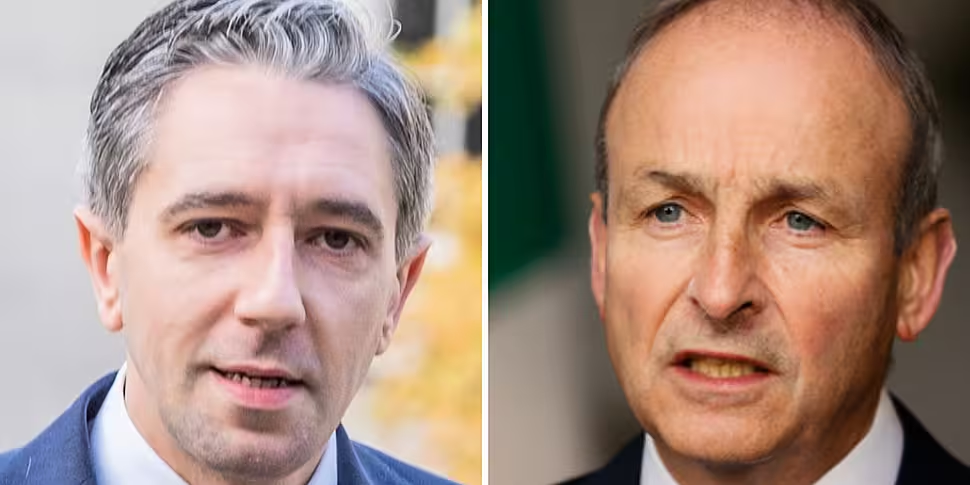Fine Gael could negotiate an equal share of the Taoiseach role - despite having 10 less seats than their expected coalition partner Fianna Fáil, according to a former spokesperson for Leo Varadkar.
Fine Gael are hoping to return to the office of the Taoiseach at some point over the next Government, with the party calling for a "parity of esteem" in the 34th Dáil.
Fine Gael have 38 TDs in the next Government, Sinn Féin have 39 and Fianna Fáil have 48.
No party, however, has enough seats to form a majority Government.
As of now, the most likely path to power is a coalition of Fianna Fáil, Fine Gael and independents.
While Fine Gael may be pushing for a split on the role of Taoiseach, it is understood that Fianna Fáil will seek to hold the position of Taoiseach for longer.
On The Anton Savage Show, public affairs strategist and former spokesperson for Leo Varadkar Nick Miller said that it is not unusual for a smaller party to seek upon an equitable rotating Taoiseach.
“We have seen similar scenarios in the past where there’s been a seat differential and there has been equitable rotation of the Taoiseach position,” he said.
“It was actually offered back in 2016 when there was a differential of six seats.
“Of course, there was more minor differences back in 2020 – this time around, there is quite a marked contrast in terms of seat numbers, but I think whatever our views are on this matter, we probably won’t know for a little while.”
The last issue to be discussed
Mr Miller said that if Fianna Fáil and Fine Gael were to agree to go into government together, a rotating Taoiseach would be the last issue to be dealt with.
“Certainly if they follow the procedures that were adhered to in the last two previous sets of negotiations,” he said.
“First of all is you work out the parameters for governments – you work out the broad policy areas, you sit down and you start to draft a programme for government.
“Then when you’ve got most of the details in place, that’s usually the time that you look at the mechanics of cabinet appointments, the number of seats per party and of course who’s going to be sitting in the big chair.”
Independents
Mr Miller said that were the two predicted coalition partners to approach Independents on joining a coalition, their strategy would depend on whether the Independents negotiated together.
"We do see a set of Independents who were previously the Rural Independent Group who may well decide to coalesce this time around - it does appear that that's quite likely," he said.
"In which case, they may choose to negotiate as a block - if not, they may decide to negotiate individually."
According to Mr Miller, some Independents could negotiate a ministerial position depending on the amount of support they could offer the government.
Listen back here:









